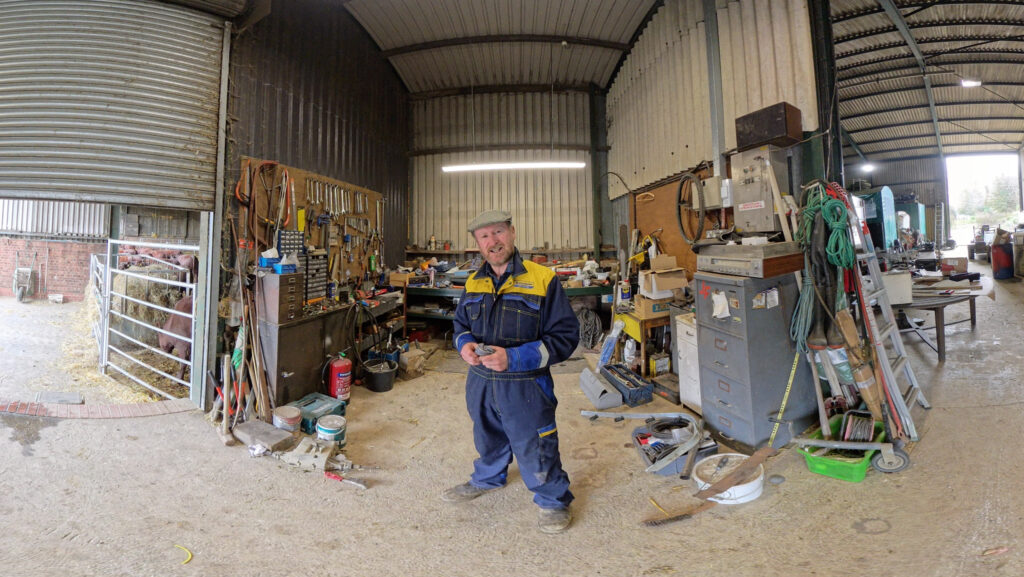Virtual reality teaches doctors about farming mental health
 © Revolve Labs
© Revolve Labs GPs and medical students are being taught about some of the unique mental health challenges facing farmers, using a new virtual reality initiative.
The Rural Minds Project, spearheaded by three rural doctors based in Suffolk, uses virtual reality (VR) headsets to simulate some of the daily scenarios farmers face, as well as highlighting the prevalence of suicide within the agricultural sector.
Dr Daniel James, Dr Richard West and Dr Jordan Tsigarides developed the educational tool based on their own experiences working with patients from the farming community.
See also: How neurodiverse workers can protect mental health
After months of development, the software is now being rolled out to GPs and students across the UK.
It recently received approval from the Royal College of General Practitioners, allowing it to reach more than 50,000 members.
At a launch event in the House of Lords on 13 November, hosted by Baroness McIntosh of Pickering, Dr West told Farmers Weekly the resource was now fully functional and was being used as part of an educational programme for doctors.
Dr West has been a partner at a rural practice in Suffolk for 27 years and said suicide in farming was an important issue that was difficult to talk about and difficult to get people engaged with.
He said the VR educational tool was great for those sorts of conversations, allowing people to get immersed in the whole issue and to reflect upon it.
“Most medical students are taught in big urban areas and big medical centres, not in rural communities, so they miss the risk factors for rural communities,” he said.
“Suicide is a real issue and it’s a tragedy every time it happens. If we can prevent one death then it will have been a success.”

© Revolve Labs
Filming
The project was filmed using actors on a farm and in a doctor’s surgery in Suffolk.
Dr James said: “As a rural GP who has grown up around farmers and knows about the stresses and the resilience of farmers, I also know that mental health isn’t something they have conversations about particularly.”
“But no one is having a conversation with young medical professionals, telling them that there is a unique suicide risk within farming.
“Within my first couple of years as a rural GP in Suffolk, we had a couple of farmers who ended their lives. The rural doctors who worked with this population knew about this. They knew it was a bad summer [for farming] and they weren’t surprised.”
Dr James wants more young professionals to learn about this, but said it was impractical to expect 2,000 foundation doctors to all visit farms and work in rural GP practices during the early stages of their careers.
He believes the VR learning experience offers the most practical alternative.
Partnership
Rural Minds was created in partnership with Cambridge-based technology firm Revolve Labs, which offered to provide the software at cost.
The project was funded by the Suffolk-based farming charity the Felix Thornley Cobbold Agricultural Trust.
James Forrest, chairman of the trust, said: “The timing of this project could not have been more appropriate. If Rural Minds can help train the medical profession to better recognise symptoms in patients, or encourage someone that is experiencing mental health problems to seek help, then all the hard work and effort will have been well worthwhile.”
Farmer-facing version available
Alongside the VR experience aimed at medical professionals, the project leaders have developed a shortened eight-minute version, designed to be used by the agricultural industry.
Rural Minds has partnered with rural mental health and suicide prevention charity You Are Not Alone to push it out at events across East Anglia and reach as many farmers and stakeholders in the community as possible.
Further collaborations with the Farm Safety Foundation (Yellow Wellies) are being explored, which could help reach more farmers as part of a nationwide campaign early next year.
Dr James said the Yellow Wellies team visited many agricultural colleges and Young Farmers’ Clubs and could reach a large audience.
He said by reaching younger farmers it might help lead to the younger generation starting more open conversations around the kitchen table about mental health in farming.

